State Policy
Voice for Refuge works around the United States tracking legislation, working with state representatives, and advancing refugee policy with partner organizations. We advise state leaders on policies that impact not only refugee communities, but vulnerable, immigrant, and non-English speaking communities as well.
Our goals include:
- Building deeper relationships with candidates we endorse and assisting them in passing legislation that supports refugees and immigrants
- Creating new relationships with elected leaders advancing welcoming legislation
- Passing meaningful legislation by targeting our efforts in key states where we have existing relationships, communities of refugee and immigrant voters, and the ability to support partner organizations
State legislatures are the building block of our democracy!
Our Work
By building relationships with refugee and immigrant leaders and candidates around the country, we build a community of thoughtful policy makers with the power to introduce meaningful legislation at the state level. When we endorse candidates and support their campaign, we want to follow that work up by endorsing their policies and supporting the legislative priorities that align with our work. By joining with candidates and representatives at the state level to advance welcoming policy, we can leverage our resources to make a difference little-by-little, state-by-state.
State Legislators for Welcome
Voice for Refuge invites legislators to commit to supporting policies that protect and uplift refugee and immigrant communities in their state. New members can join any time!
148 State Legislators as of July, 2024
Representing 36 States
“Embracing refugees and immigrants reflects the American responsibility to aid those in need and protect them from violence and persecution. As a welcoming society, we recognize, respect, and appreciate the positive contributions refugees bring to their new home, fostering growth and harmony within our communities.” State Representative Iman M. Jodeh, Colorado
Issues We Work on at the State Level
State legislatures’ recognition of June 20th as World Refugee Day celebrates the strength and resilience of people who have been forced to flee their countries. When states choose to recognize World Refugee Day, they honor the long history of contributions refugees have made to their communities and demonstrate a commitment to new refugee arrivals. Everyone who is forced to flee their home has the right to be treated with dignity, to be welcomed, and to be protected in the places they resettle. It is critical for these principles to be enshrined and celebrated in state resolutions and laws.
Offices of New Americans are dedicated to improving services for and engaging with diverse immigrant and refugee communities. These offices are part of state and local governments throughout the country and are among the first resources refugees turn to in the process of resettlement. They provide information about and facilitate the operation of government services meant to aid refugees and other new arrivals, helping connect individuals to community organizations, academic institutions, and private sector business. It is crucial for states to continue funding these offices, and to facilitate the creation of ONAs at the local level.
When an individual is highly qualified for a job they are unable to work in the U.S. because of licensing or language barriers, we deprive our communities and these people of the opportunity to thrive together. Internationally trained individuals underemployed because of barriers to licensing could fill critical jobs in the medical field, engineering, and teaching or translation services in your state. These individuals are highly trained, highly skilled and were working in their profession in their home countries before circumstances resulted in them moving to the U.S. Unfortunately, in most states, it is simply impossible for their degrees to be recognized under state law. It is estimated that the underemployment of immigrant populations results in $39.4 billion dollars in foregone earnings each year.
During the Covid-19 pandemic states like New Jersey, Colorado, and Virginia- all of which have large immigrant and refugee populations, adopted policies that removed many of the barriers faced by foreign-trained physicians, nurses, and other medical professionals. Lifting these restrictions allowed qualified doctors to work in hospitals and successfully alleviated shortages. Similar steps in broadening medical licensure and international credentialing would alleviate the issue of underemployment among refugees and address shortages in various professions around the U.S.
Renters across the U.S. have seen the average rent rise of 18% in the last five years, far outpacing inflation. This crisis makes it increasingly difficult for disadvantaged communities to secure quality and affordable housing with each passing year.
Since the American withdrawal from Afghanistan in August 2021, over 76,000 Afghans have arrived in the U.S. These new arrivals, already facing the hardships of readjusting to life in the United States and seeking to secure employment, childcare, and healthcare, also find themselves entering an unaffordable housing and rental market. Afghans are not alone in facing this challenge. Asylum seekers, recently resettled refugees, and even those who have been here for decades face housing insecurity alongside millions of others in the U.S.
Initiatives like California’s Afghan Support and Investment Program, which provides time-limited housing rental subsidies to Afghan refugees, have gone a long way in providing affordable housing solutions. It is crucial that other states implement similar programs so that refugees can achieve financial security and have homes in their new communities. At the same time, states’ efforts must go even further, ensuring lasting access to affordable housing for all.
Voice For Refuge supports affordable housing and pro-housing legislation, even if it is not made with refugees specifically in mind. We all must support policies that provide affordable and equitable access to housing, particularly for the most vulnerable and financially insecure.
Initiatives like California’s Afghan Support and Investment Program, which provides time-limited housing rental subsidies to Afghan refugees, have gone a long way in providing affordable housing solutions. It is crucial that other states implement similar programs so that refugees can achieve financial security and have homes in their new communities. At the same time, states’ efforts must go even further, ensuring lasting access to affordable housing for all.
More broadly, Voice For Refuge is looking to support affordable housing legislation that is not made specifically with refugees in mind. Refugees share an interest with all Americans in seeing policies that provide affordable and equitable access to housing, particularly for the most vulnerable and financially insecure.
Language is one of the greatest obstacles to refugee and immigrant integration in the communities in which they resettle. English-language skills are essential for securing jobs, housing, and more broadly, for building ties and friendships with one’s neighbors. Government services, even when they might be required to accommodate non-English speakers, are often harder to navigate without knowledge of English. States must work to facilitate and fund English as a second language (ESL) education for refugees, both in schools, and in specialized programs for adults.
With a lack of adequate public transportation across much of America, it is essential for workers, regardless of status, to be able to secure driver’s licenses so that they commute to and from their homes. Legislators in states like Michigan, Vermont, Massachusetts, Georgia, and so many other states have already taken the step of extending licenses to undocumented individuals. All individuals, regardless of immigration status, deserve dignity, and this includes the ability to commute to a workplace, to school, or to any other sort of activity.
Not only are policies blocking immigrant workers cruel and uncaring, but they also harm the entire economy and community of a state or region. Florida’s new effort to block individuals with uncertain immigration status from working has caused thousands of individuals to step away from critical jobs that all Floridians depended upon being filled. When states work to welcome and support immigrant workers, local economies, communities, and families thrive.
Voice for Refuge opposes policies that block individuals from seeking work and caring for themselves and their families.
States that have openly said they will not resettle refugees or do not welcome new arrivals are not only proving themselves to be unwelcoming and bigoted, they also demonstrate their misunderstanding of how refugee resettlement functions in the United States. Refugee resettlement is managed at a federal level and state policies that support resettlement and integration services are simply meant to help new arrivals succeed and feel welcomed in their communities. Individuals are free to move to your state if they choose and can bring valuable skills and alleviate critical vacancies.
When state politicians choose to voice anti-refugee sentiments, they demonstrate to us that they would rather deny their state the support of new workers, neighbors, and perspectives than welcome the skilled individuals who were forced to flee their home now seeking to build new lives in a new place. Yet, in practicality, a state government has no way to actually stop refugees from being resettled or moving to a state. Thus, this type of rhetoric only serves to arouse fear and miseducate voters about refugee resettlement.
Voice for Refuge strongly opposes any official resolutions, amendments, or executive statements that are openly hostile to new arrivals and refugees.

